Personalized Approaches Set the Foundation for Lasting Sobriety

An effective addiction recovery journey begins with detoxification that is tailored to the individual's unique needs. Personalized detox plans are increasingly recognized as essential in improving safety, comfort, and long-term success. This article explores the crucial components of personalized detoxification, emphasizing the relationship with holistic care, medical supervision, and the development of strategies that significantly enhance recovery outcomes.
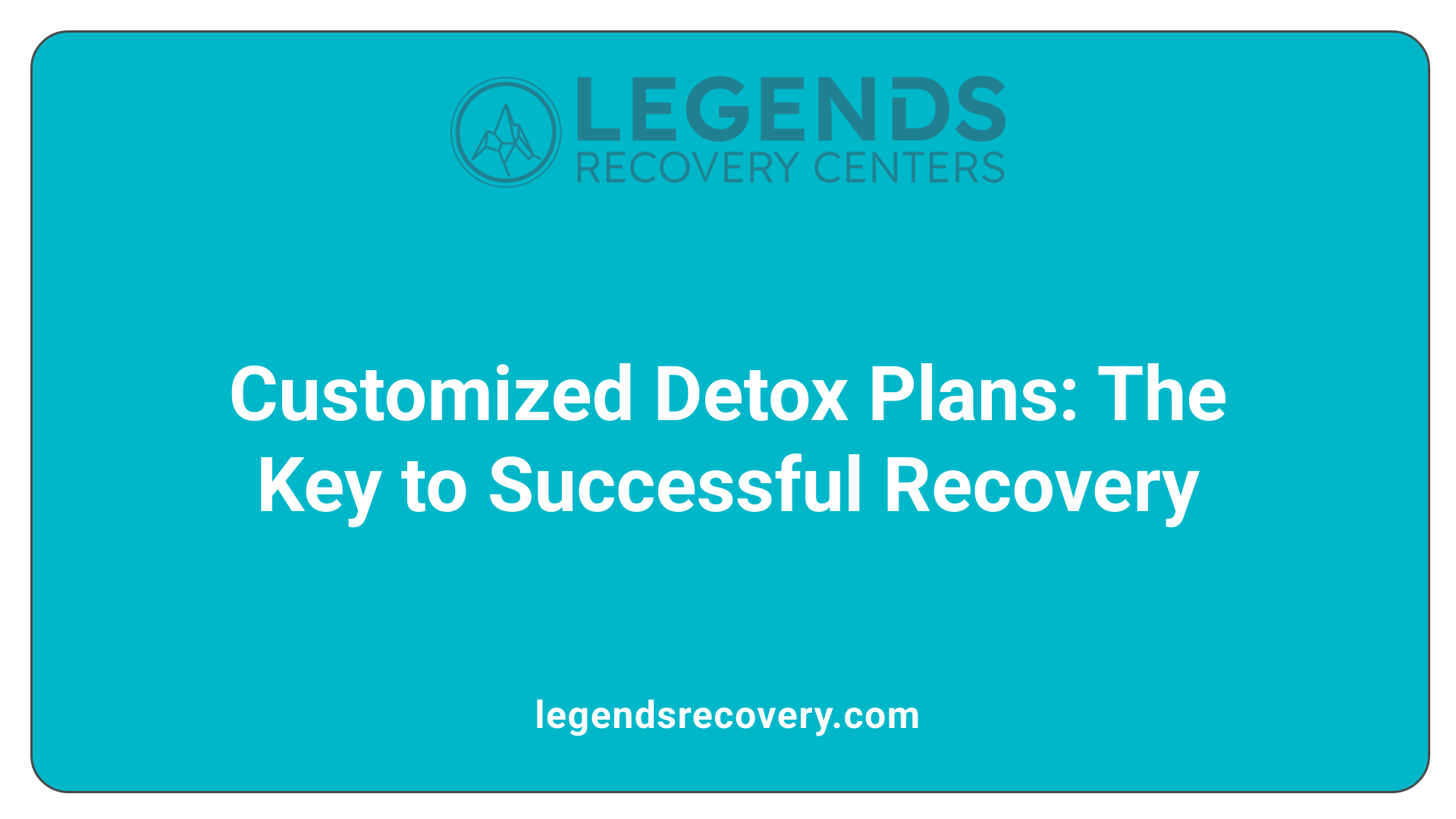
Personalized detox plans are essential in addiction recovery because they are carefully designed to meet the specific needs of each individual. Factors such as the type and severity of addiction, overall health, mental health conditions, and personal circumstances are all taken into account to create a tailored approach.
Healthcare professionals conduct thorough assessments—including physical examinations, medical history, and mental health screenings—to develop these customized plans. This ensures that withdrawal is managed safely and comfortably, reducing risks of life-threatening complications like seizures or delirium tremens.
Addressing co-occurring disorders, such as anxiety, depression, or trauma, alongside substance use issues is a vital part of personalized detox. By treating mental health conditions concurrently, the chances of long-term sobriety significantly improve.
Personalized plans also incorporate medication-assisted therapies such as Suboxone or methadone for opioid withdrawal, and holistic practices like yoga, meditation, or acupuncture, which help alleviate withdrawal symptoms and promote overall well-being.
Monitoring progress closely allows healthcare providers to make necessary adjustments, enhancing safety and effectiveness during detoxification. Flexibility in these plans is critical because individuals’ needs and responses can change as they progress.
Ultimately, personalized detox plans lay a solid foundation for ongoing treatment phases—like therapy and counseling—and increase the likelihood of lasting recovery by addressing the complex biological, psychological, and social factors involved in addiction.
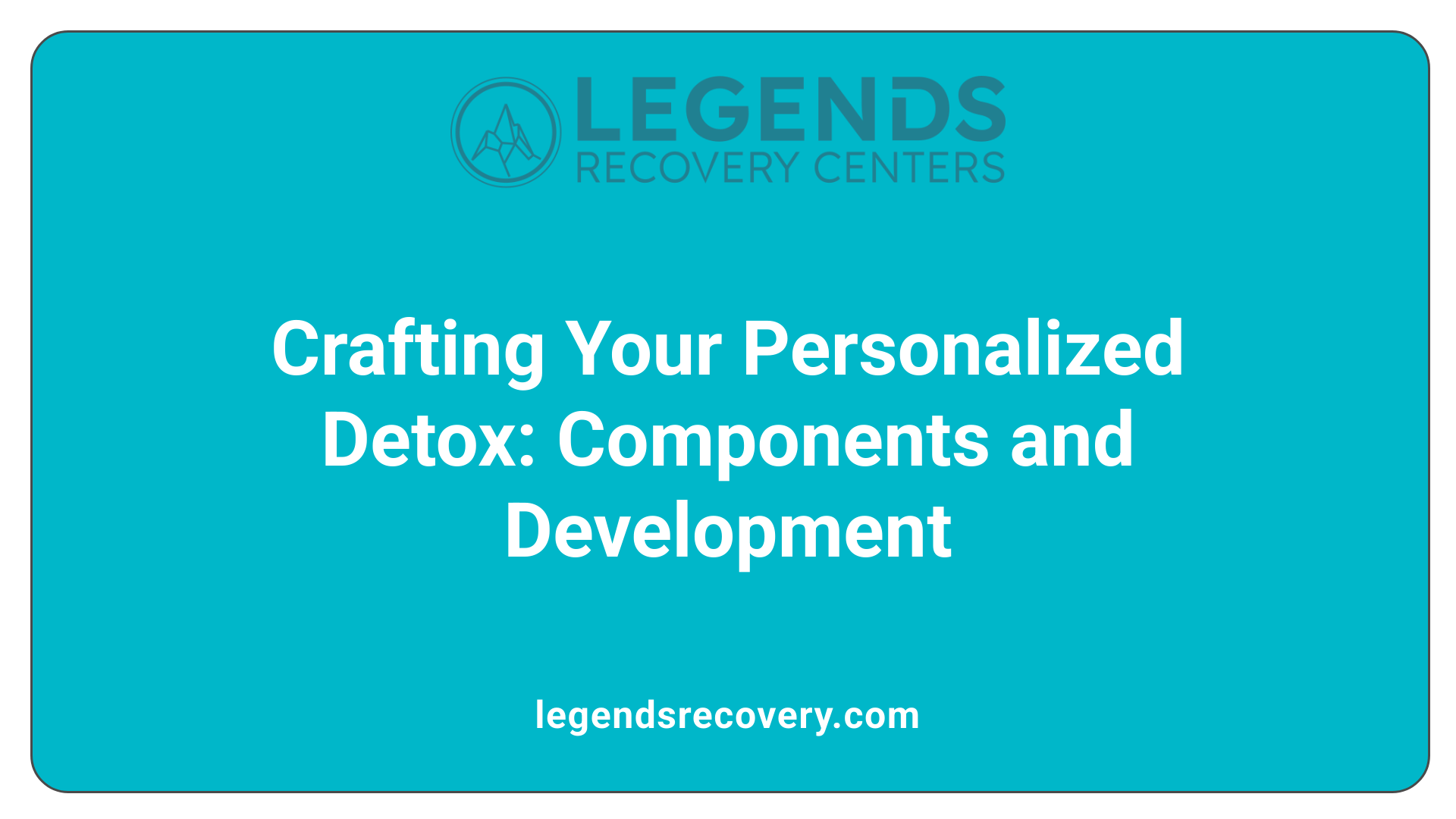
Personalized detox plans are crafted to meet the specific needs of each individual, focusing on safety, comfort, and effectiveness. The foundation begins with comprehensive assessments that evaluate both physical and mental health. Healthcare providers review medical history, substance use patterns, and any co-occurring mental health conditions such as anxiety or depression.
A crucial part of development involves medication-assisted therapies (MAT), which are tailored according to the substance involved and the severity of withdrawal symptoms. Medications like methadone, buprenorphine, or naltrexone may be prescribed to manage withdrawal and cravings. The dosage and medication type are adjusted based on ongoing monitoring.
Holistic practices are integrated into the plan to support overall well-being. These include nutritional support, stress reduction techniques such as yoga and meditation, and other complementary therapies like acupuncture. Such approaches help alleviate withdrawal symptoms, reduce anxiety, and promote emotional stability during detox.
Monitoring is continuous throughout the detox process, with medical professionals regularly assessing progress, vital signs, and response to medications. This ongoing evaluation allows adjustments to the treatment, whether modifying medication dosages, introducing new therapies, or addressing emerging challenges.
Development of these plans involves a multidisciplinary team—medical doctors, mental health professionals, nutritional experts, and holistic therapists—who collaborate to ensure the plan is dynamic and centered on the individual's evolving needs. By considering all relevant factors—medical, psychological, and social—these customized programs successfully facilitate safe detoxification while laying a strong foundation for long-term recovery.
In summary, individualized detox plans are sophisticated, adaptable frameworks that combine medical interventions, holistic supports, and ongoing assessments. This personalized approach improves safety, enhances comfort, and increases the likelihood of sustained sobriety.
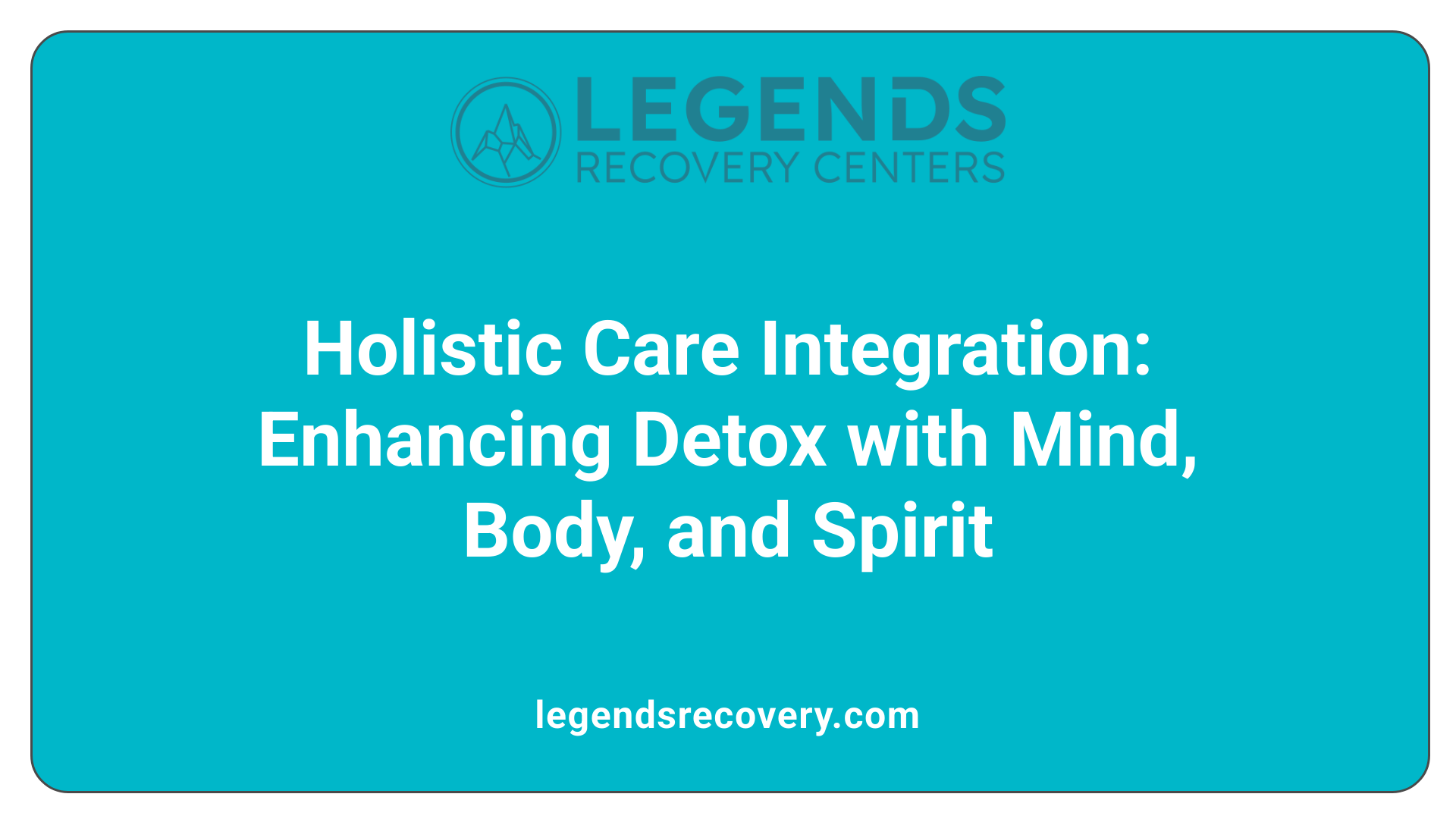
Holistic care and personalized detox strategies are deeply connected because both aim to treat the person as a whole, not just their addiction symptoms. Holistic care involves supporting physical, emotional, psychological, and spiritual health through various practices like meditation, yoga, acupuncture, and natural therapies.
By integrating these practices, detox becomes more than just a medical procedure—it becomes a comprehensive wellness process that promotes overall well-being. Personalizing detox strategies means tailoring treatments such as herbal remedies, dietary adjustments, and mind-body techniques to fit each individual’s unique background, needs, and values.
This customized approach enhances the detox process by addressing underlying trauma, reducing stress, and building resilience. When holistic care is combined with medical detox and evidence-based therapies, it increases the chances of successful recovery.
The ultimate goal of merging these approaches is to foster long-term health and balance. This interconnected relationship helps individuals not only detox safely but also develop healthier coping mechanisms, improving their overall quality of life and long-term sobriety.
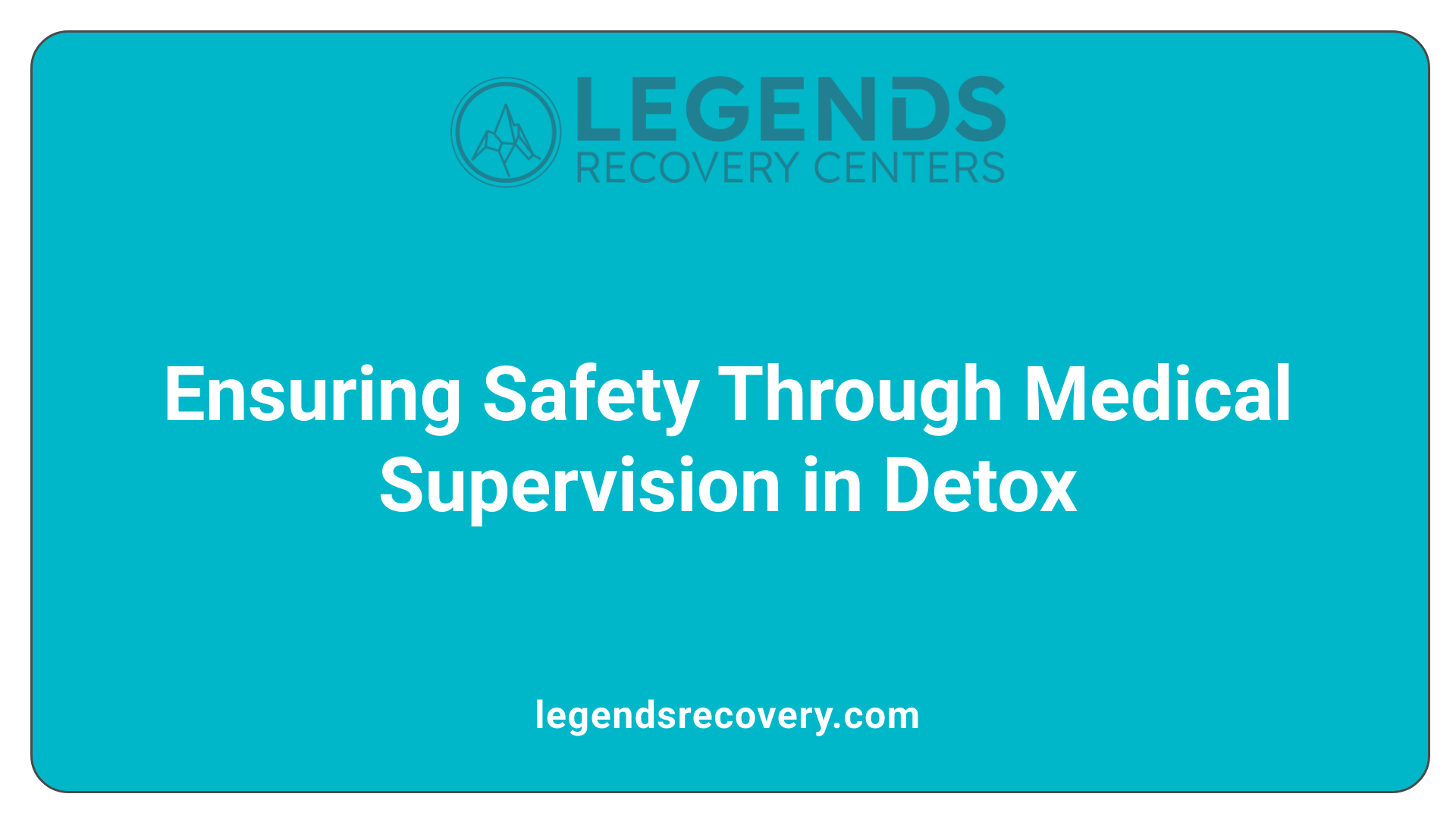
Medical supervision during detoxification is crucial for ensuring the safety and well-being of individuals undergoing withdrawal. Each person’s substance use history, health status, and severity of addiction influence their detox needs. Healthcare professionals continuously monitor vital signs, such as heart rate, blood pressure, and oxygen levels, to detect early signs of distress.
They are skilled at promptly managing withdrawal symptoms, which can vary greatly depending on the substance. For example, alcohol and benzodiazepine withdrawal pose risks of seizures and delirium tremens, which require immediate intervention. Medications like benzodiazepines or anticonvulsants are often administered as part of detox plans to prevent these complications.
Supervised detox environments also allow for proper hydration, nutritional support, and emotional assistance. Medications such as buprenorphine, methadone, or naltrexone are used to lessen cravings and withdrawal discomfort, especially in opioid dependence. This tailored medical approach not only promotes physical safety but also provides emotional comfort, reducing anxiety and fear associated with detox.
Attempts to detox without professional oversight increase the risk of severe health events, including dehydration, seizures, or even death. Therefore, entering a medically supervised detox program significantly reduces these dangers, making the process safer and more manageable.
Ultimately, medical supervision creates a controlled, supportive setting that addresses both the physical and psychological challenges of detox, establishing a stable foundation for ongoing addiction treatment and long-term recovery.
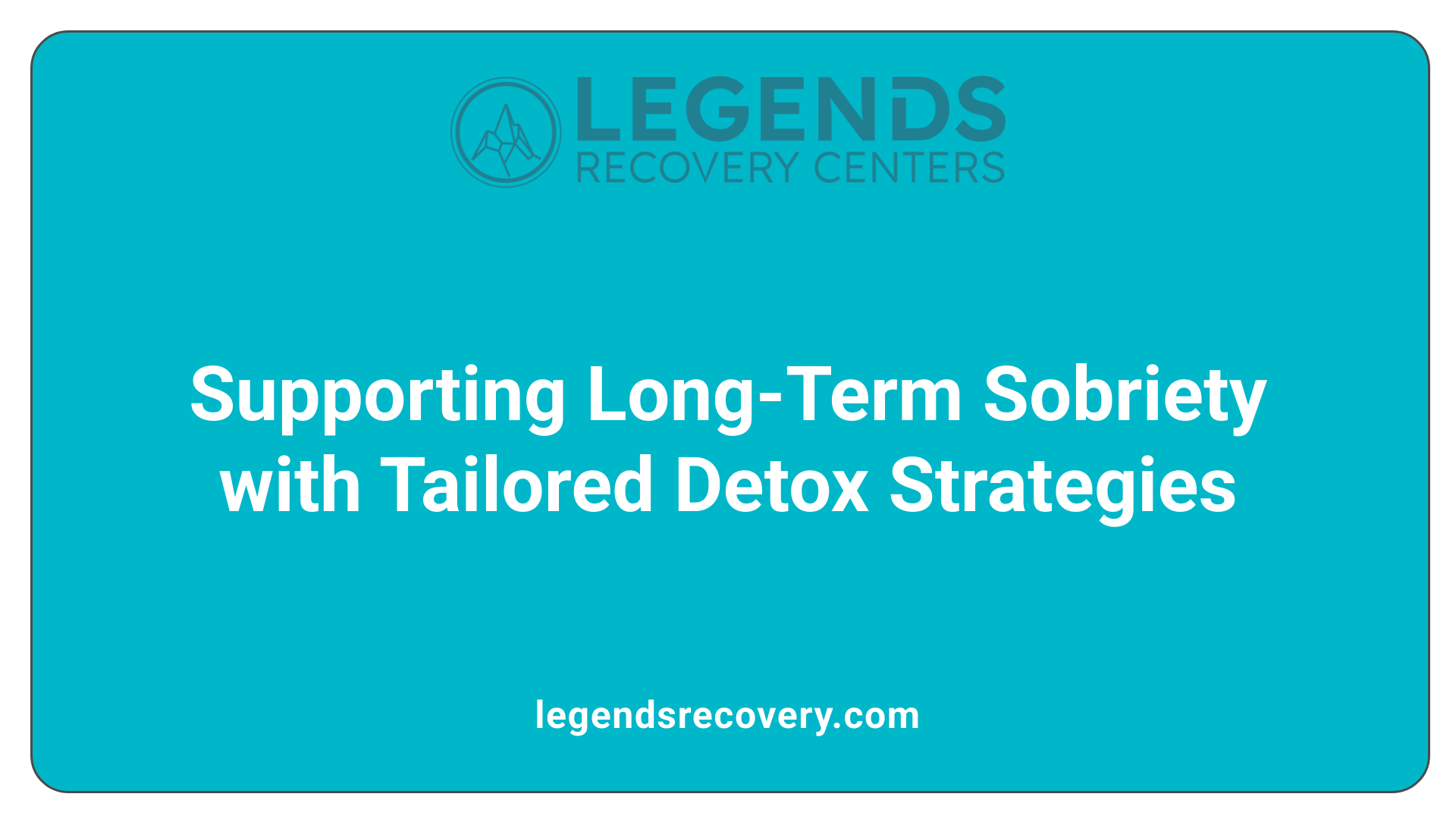
Personalized detox plans play a crucial role in ensuring safe and effective withdrawal from substances. These approaches are designed with a deep understanding of each individual's unique circumstances, including their health status, mental health conditions, and severity of addiction.
Comprehensive assessments, such as physical examinations, substance use history, and mental health screenings, help healthcare professionals craft a customized plan. This plan may include medications like buprenorphine or naltrexone for opioid withdrawal, holistic therapies such as yoga and acupuncture, and supportive measures such as nutritional guidance.
Throughout detoxification, continuous monitoring allows for real-time adjustments, minimizing risks like seizures or delirium tremens for alcohol and benzodiazepine withdrawal. This personalized oversight ensures that withdrawal symptoms are managed effectively, reducing discomfort and health complications.
Furthermore, tailored strategies enhance patient engagement and motivation, fostering a supportive environment that addresses both physical and psychological needs. This increases the likelihood of completing detox safely and sets a solid foundation for ongoing recovery.
In summary, individualized detox plans mitigate risks, improve symptom management, and promote a smoother transition from physical dependence to mental and emotional stability, which are vital for long-term sobriety.
Personalized detox strategies are an essential starting point for anyone embarking on addiction recovery. Because each person's substance use history, physical health, mental health, and personal circumstances are unique, tailored detox plans ensure safer, more manageable withdrawal processes.
These plans involve detailed assessments and often include medication-assisted therapies to minimize discomfort and reduce health risks. Healthcare professionals play a vital role by designing flexible programs that monitor progress and adapt to individual needs, addressing any co-occurring mental health conditions along the way.
However, detox is only the beginning. Successful recovery depends on ongoing support, which often includes therapy, medication management, support groups, and holistic practices like yoga and meditation. A comprehensive, individualized approach helps maintain motivation, build resilience, and prevent relapse.
Encouraging each person to follow their own recovery journey ensures that treatment remains relevant and engaging. Customization recognizes the complex factors behind addiction and strengthens the foundation for long-term sobriety. In conclusion, personalized detox plans set the stage for lasting change, guiding individuals through a safe detoxification and into a future of sustained recovery.
Personalized detox plans are not just about managing withdrawal; they establish the foundation for a successful, long-term recovery journey. By tailoring interventions to individual needs, incorporating holistic and medical strategies, and ensuring continuous support, these plans empower individuals to overcome physical dependence safely and begin addressing underlying issues that contribute to addiction. The integration of personalized care, ongoing assessment, and support systems increases engagement, reduces relapse risks, and supports durable sobriety. As the addiction treatment landscape advances, the importance of customized detox strategies remains central to fostering healthier, balanced lives and sustaining recovery over the long term.